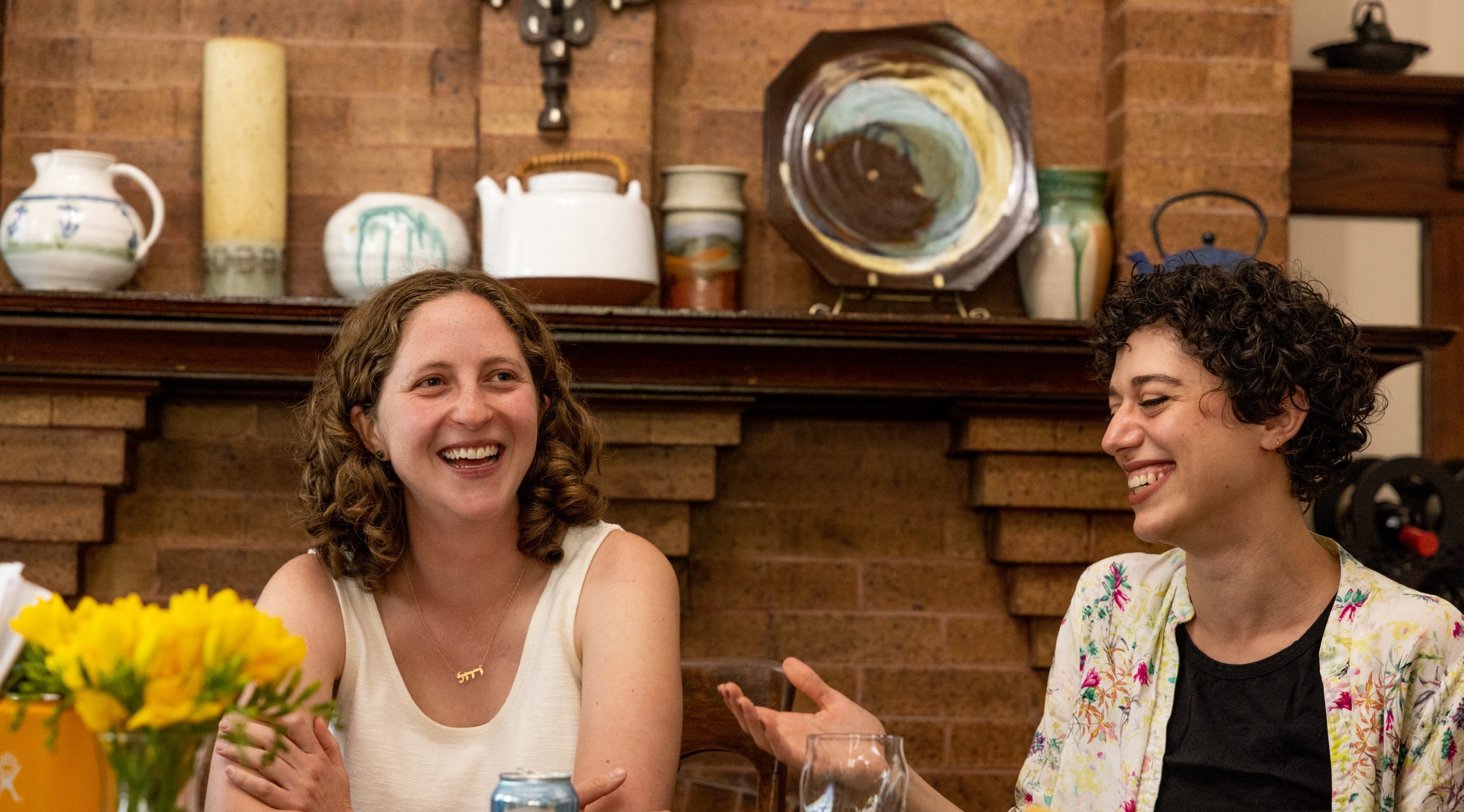
In some of my recent morning meditation sits, I’ve noticed a feeling of sadness and grief arising. Yes, of course, there’s plenty of cause for sadness and grief in the world and amongst the Jewish people. But this grieving was coming up from a different place. It’s some anticipatory grieving around a subtle but significant shift in the life stage my wife and I are going through as our middle child prepares to graduate high school and leave home.
In one of those mysterious poetic rhymes in which life can sometimes speak, my children–21, 18, and 11–have almost precisely the same spread in age as my brothers and I (I’m the youngest). And I’m finding echoes of the feelings of loss that I experienced when my two older brothers had flown the coop and it was down to just my parents and me at home. But this time, I’m approaching that point as one of the parents, aware of all the memories of these now-grown children in this house we’ve lived in for the majority of their lives. While I am happy that both my older boys are making their way in the world–and that we can still look forward to the company of our wonderful little one for a few more years–I get why there’s some grief making its presence felt. The shape of home is shifting, and that’s hard.
Home, its shape-shifting, and even the undertow of the powerful emotions surrounding it, is a theme in Parashat Yitro–though I think we sometimes have to look for it a little. But when we do, it’s right there beneath the surface. Look right at the beginning: “So Jethro, Moses’ father-in-law, took Zipporah, Moses’ wife, after she had been sent home, and her two sons—of whom one was named Gershom, that is to say, ‘I have been a stranger in a foreign land’; and the other was named Eliezer, meaning, ‘The God of my father was my help, delivering me from the sword of Pharaoh.’ Jethro, Moses’ father-in-law, brought Moses’ sons and wife to him in the wilderness, where he was encamped at the mountain of God.” (Ex. 18:3-5) Rashi, quoting the midrash, paints a scene wherein Aaron, when he first greets Moses on his way back to Egypt from the burning bush, asks him, rhetorically, “We’re already grieving so many people in Egypt; why add to the number?” So Moses sends his wife and children away–a moment, one imagines, of painful family separation, of grieving and loss, of shifting the dimensions and feelings of home.
Home is also present in the Ten Commandments: the mitzvot of honoring parents (#5), honoring marriage (#7), focusing our attention on what is present in our homes and not coveting that which is over the fence (#10)–and the ways we can imagine or have experienced the transgression of those commandments–all of these tap into the strong emotional currents surrounding the nature and shape of home.
I’m fond of saying that I think spirituality is our capacity to feel truly at home in the universe. And in this sense, perhaps the most powerful teaching about home comes not in any of these moments that I’ve mentioned, but in the mitzvah of Shabbat: “For in six days YHVH made heaven and earth and sea—and all that is in them—and then rested on the seventh day; therefore YHVH blessed the sabbath day and hallowed it.” Like the Creator, for six days we label and separate, calling things heaven or earth or sea, this name or that home, home or not-home. All that naming connotes both standing in relationship with and standing over and against the world–at home in the world, but also not fully at home in it at the same time. On Shabbat we rest from all that, from the constant work of naming and labeling and separating. We allow ourselves to feel deeply, truly at home–in the world, in our houses, in our relationships, in ourselves.
Yet Shabbat doesn’t only happen every seven days. Shabbat consciousness is actually available to us every seven hours, every seven minutes, every seven seconds. That, in many ways, is the whole point of Jewish spiritual practice. When we can cultivate it and allow it to take root and grow within us, we can respond to the shifting shapes and tones of home more wisely and graciously–because we can sense that, on the deepest levels, we’ve never really left home at all.

